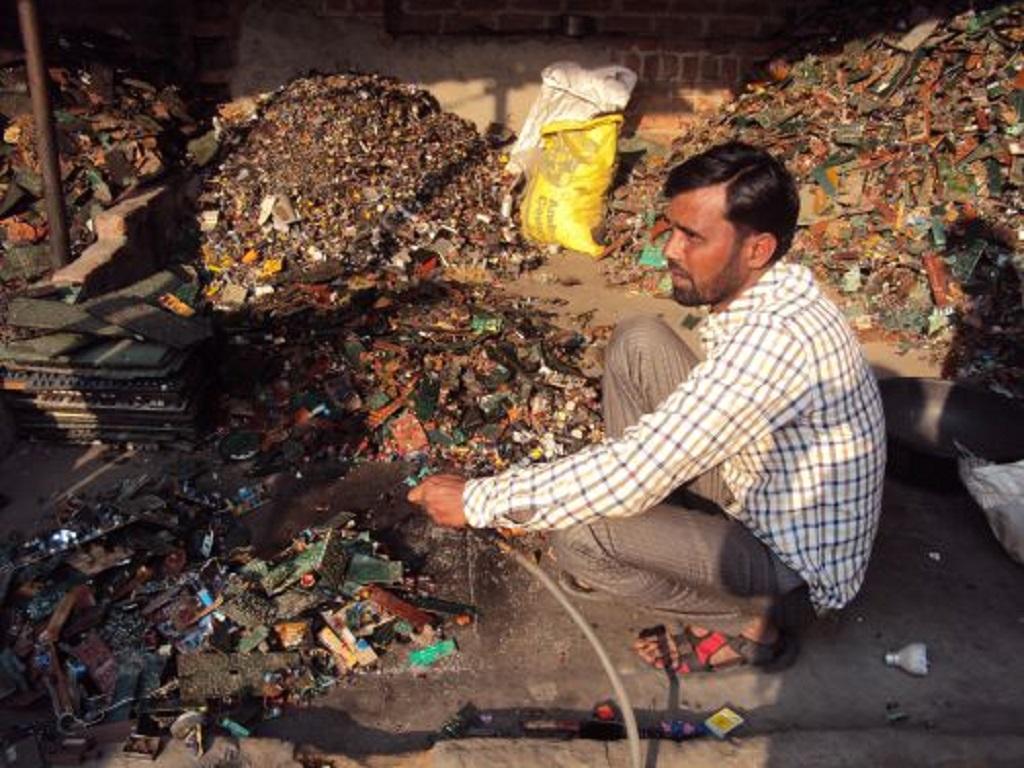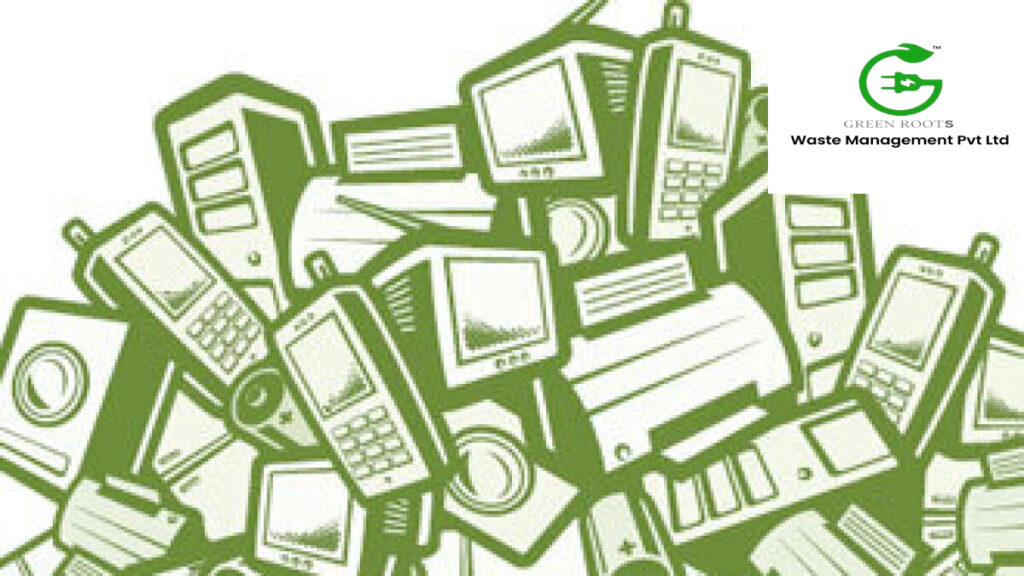
India, a nation on the cusp of a technological revolution, is simultaneously confronting a burgeoning e-waste crisis. With the rapid adoption of electronic devices, India’s e-waste generation is projected to double by 2030, reaching a staggering 30 million metric tonnes annually. This is really bad for the environment and people’s health.
When we throw away electronic things, it releases dangerous stuff like lead and mercury into the soil and water. This can make people sick, especially kids and pregnant women. And making new electronic things also harms the environment because we use up a lot of natural resources.
India has some rules about handling this electronic trash, but it’s hard to make sure everyone follows these rules. A lot of this trash ends up getting recycled in ways that are not safe for the environment or for the people doing the recycling.
In the realm of environmental responsibility, Green Roots Waste Management stands as a beacon of sustainability, dedicated to transforming e-waste into valuable resources. With a deep-rooted commitment to circular economy principles, the company empowers businesses and individuals alike to minimize their environmental footprint and embrace a greener future.

The informal sector plays a crucial role in India’s e-waste management, employing millions of individuals who recover valuable metals and components from discarded electronics. While this informal recycling provides employment opportunities, it often occurs under unsafe and environmentally hazardous conditions, exposing workers to toxic substances and perpetuating the cycle of improper e-waste disposal.
Guided by a team of experienced professionals, Green Roots Waste Management seamlessly integrates sustainability into every aspect of its operations. The company’s commitment to eco-friendly practices manifest in its adoption of energy-efficient technologies, its dedication to minimizing waste generation, and its unwavering support for local communities.
Public awareness campaigns play a critical role in educating citizens about the proper disposal and recycling of electronic waste. Encouraging consumers to adopt responsible consumption habits, such as extending the lifespan of devices and opting for sustainable electronics, can significantly reduce e-waste generation.
To fix this, India needs to do a few things. They need to make sure everyone is following the rules about getting rid of this electronic trash properly. They should also try to find better ways to recycle this stuff without hurting the environment or people. And it’s important to teach everyone about the right way to throw away electronic things.
India’s e-waste problem is complex and multifaceted, but it is not insurmountable. By implementing comprehensive e-waste management strategies, embracing technological innovations, and fostering public awareness, India can transform its e-waste challenge into an opportunity for sustainable development and a cleaner environment for future generations.

